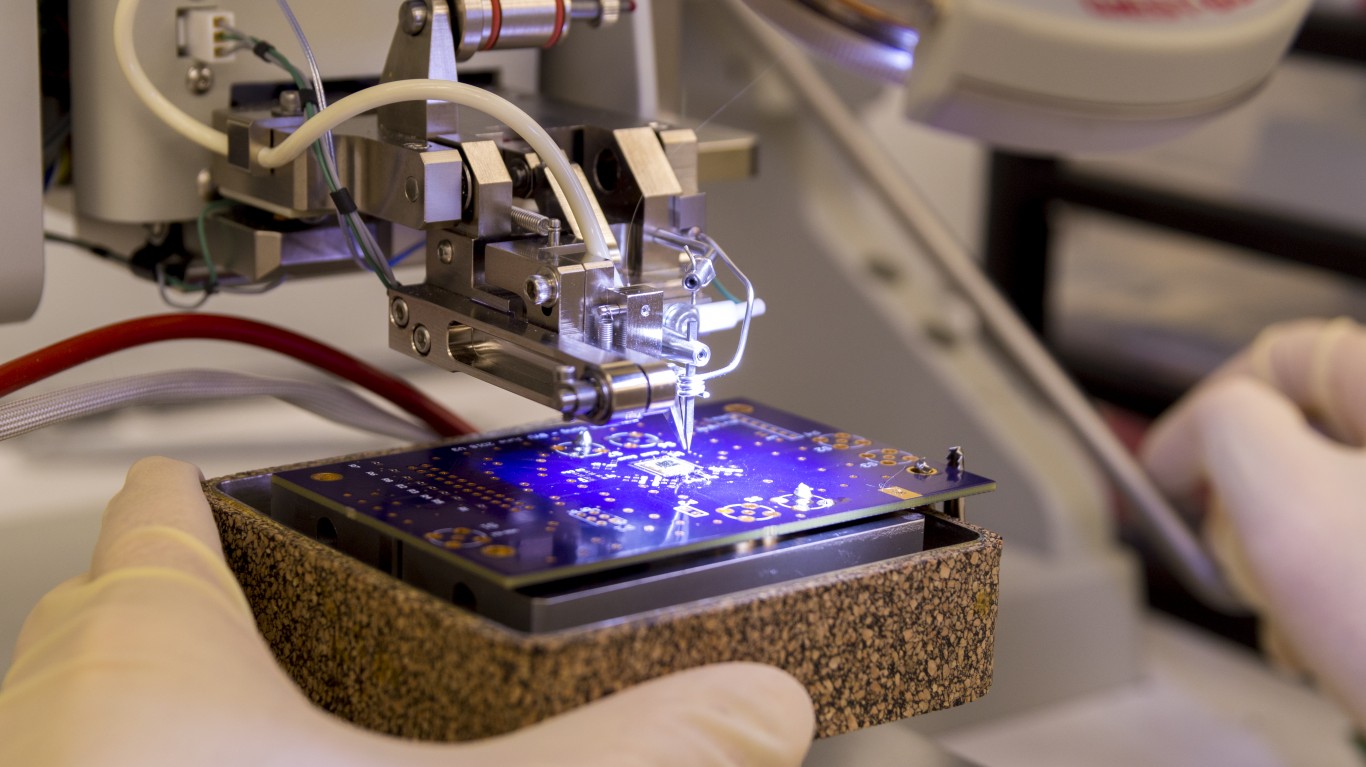Investing
Before the Bell: Santa Clause Reappears (Briefly) and Taiwan Semiconductor's Milestone

Published:

Premarket action on Friday had all three major U.S. indexes trading slightly lower: the Dow Jones industrials were down 0.22%, the S&P 500 down 0.25% and the Nasdaq 0.29% lower.
All 11 market sectors closed higher Thursday, with communication services (2.69%) and technology (2.64%) adding the most. Consumer staples (0.4%) and utilities (0.68%) posted the day’s smallest gains. The Dow closed up 1.05%, the S&P 500 ended 1.75% higher and the Nasdaq saw a 2.59% gain on Thursday.
Trading volume was lighter than average again Thursday, and New York Stock Exchange advancers led decliners by a ratio of more than 5 to 1, while Nasdaq advancers led decliners by more than 4 to 1. Among S&P 500 stocks, the big gainers included Tesla, up 8.1%, Ford, up 5.4%, and Carnival, up 5.4%.
On the economic front, Thursday’s report on initial claims for unemployment benefits came in at 225,000, slightly above the consensus estimate of 220,000. Continuing claims rose by 41,000 to 1.71 million. These numbers indicate that the tight labor market may be loosening up a little as more people are having trouble finding a job.
The U.S. crude oil inventory rose by less than a million barrels, well below the reported drawdown of 3.1 million barrels reported late Wednesday by the American Petroleum Institute. Crude traded at around $78.25 a barrel early Friday morning, $0.15 lower than Thursday’s closing price.
Colder weather last week nearly tripled the drawdown in U.S. natural gas inventories to 213 billion cubic feet. Natural gas opened for trading at around $4.15 per million BTUs (1,000 cubic feet), less than half the August peak of around $9.70.
The switch from gas to coal for power generation that occurred this past summer is reverting to natural gas as prices fall. For the month of December to date, shares of coal miners Arch Resources, Peabody Energy and Ramaco Resources have dropped by 8.2%, 16.0% and 23.6%, respectively.
Taiwan Semiconductor Manufacturing Co. Ltd. (NYSE: TSM) on Thursday celebrated the beginning of volume production at its new 3-nanometer (3nm) manufacturing facility (fab), the most advanced chipmaking process in the world. Compared to the 5nm process that has been the industry’s most advanced, TSMC’s 3nm chips offer 1.6 times greater logic density and a 30% to 35% reduction in power consumption while running at the same clock speed.
TSMC estimates that 3nm technology will create products with a market value of $1.5 trillion within five years. The company is building another 3nm fab near Phoenix, Arizona, at an estimated cost of around $40 billion. The Taiwan fab cost about $60 billion.
The Philadelphia (PHLX) Semiconductor Index (SOX) added 3.3% on Thursday, and chipmakers Ambarella, NXP Semiconductor and Nvidia added 5.5%, 4.23%, and 4.04%, respectively.
Start by taking a quick retirement quiz from SmartAsset that will match you with up to 3 financial advisors that serve your area and beyond in 5 minutes, or less.
Each advisor has been vetted by SmartAsset and is held to a fiduciary standard to act in your best interests.
Here’s how it works:
1. Answer SmartAsset advisor match quiz
2. Review your pre-screened matches at your leisure. Check out the advisors’ profiles.
3. Speak with advisors at no cost to you. Have an introductory call on the phone or introduction in person and choose whom to work with in the future
Thank you for reading! Have some feedback for us?
Contact the 24/7 Wall St. editorial team.